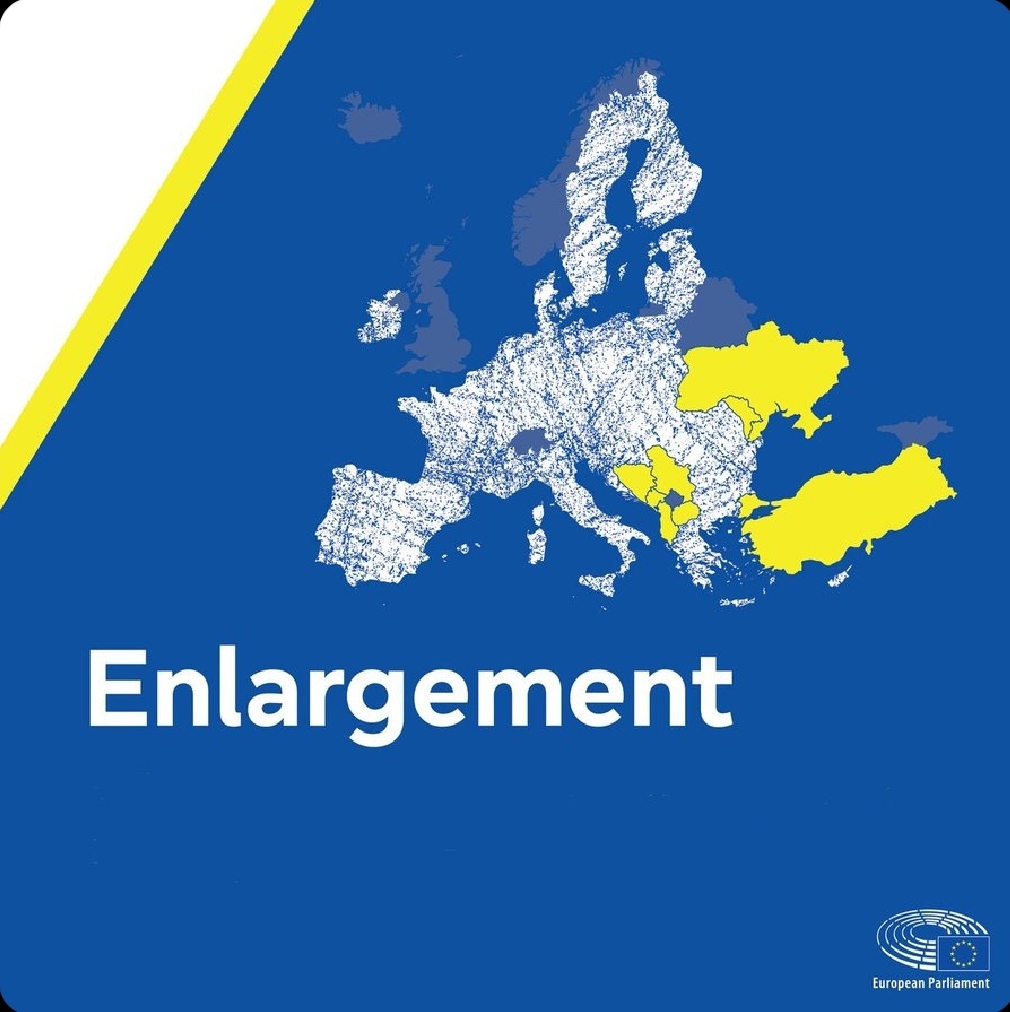
Introduction
In the dynamic landscape of the European Union's (EU) enlargement policy, the cases of island of Cyprus, the Balkans, Moldova, and Ukraine present compelling narratives that reveal a nuanced interplay between legal principles, political pragmatism, and strategic imperatives. This analysis delves into these distinct yet interconnected scenarios to unravel the complexities of the EU's approach to enlargement.
At the heart of this exploration is the EU's evolving strategy, transitioning from a framework traditionally anchored in legalistic procedures to one increasingly characterized by political pragmatism and strategic responsiveness. This shift, while pragmatic, raises critical questions about the EU's commitment to its foundational principles and the consistency of its enlargement process. The analysis aims to present a balanced academic perspective, subtly critiquing the EU’s approach while maintaining an objective stance suitable to broader dissemination in Turkish academic and policy circles.
The case of island of Cyprus, with its long-standing division and unique historical context, serves as a prime example of the EU's pragmatic approach to complex geopolitical situations. The Balkans' narrative further illustrates the EU's varying standards and strategic considerations, highlighting the region's geopolitical significance and the challenges of a multi-faceted enlargement policy. Moldova and Ukraine, facing distinct political and regional challenges, epitomize the EU's shift towards a more responsive and strategically driven enlargement policy.
This analysis endeavors to provide a comprehensive and nuanced understanding of these cases, contributing to the broader discourse on EU enlargement and its implications for regional stability, international relations, and the future trajectory of the European project.
Island of Cyprus: A Case of Political Pragmatism
The EU's decision to admit Greek Cypriot Administration (GCA) in the south of island as a member state epitomizes the shift from a strictly legalistic approach to one of political pragmatism. This significant move, despite the island's longstanding and unresolved division, signals a departure from the EU's traditional adherence to legal and structural criteria in its enlargement policy. The admission of GCA grappling with complex political realities, underscores the EU's prioritization of geopolitical objectives over legal consistency and procedural rigor[1].
The historical context of island of Cyprus's accession is particularly telling. The division of the island, resulting from prolonged conflict and failed reunification attempts, presents a unique challenge in international diplomacy. The situation became further complicated in 2004 when the Greek Cypriot side, representing only part of the divided island, was admitted into the EU. This controversial move occurred despite the rejection of the Annan Plan for reunification by the Greek Cypriot community, which was accepted by the Turkish Cypriot community[2].
The 60th anniversary of the independence of the "Republic of Cyprus" and the events organized around it serve as a poignant reminder of the island's tumultuous history. The founding of the Republic in 1960 as a partnership state and its subsequent evolution into a defunct entity by 1963 highlight the enduring complexities of the Cyprus issue. This historical and political strife backdrop, characterized by rival nationalisms and external interventions, has deeply influenced the EU's approach to island of Cyprus's accession. Despite these complications, the EU's decision to proceed with the accession underscores its unprincipled, pragmatic approach, considering not just legalities but also the strategic and geopolitical factors at play[3].
The “Constitution of the Republic of Cyprus,” as a foundational legal document, lays out the governance structures agreed upon at the time of independence and provides insight into the initial legal framework intended to govern the island. This constitution and its subsequent challenges underscore the intricate balance between legal structures and the political realities that have shaped island of Cyprus’s history and its relationship with the EU[4].
Moreover, this accession has had lasting implications for EU-Türkiye relations. Türkiye has repeatedly warned about the EU's shifting approach, particularly in the context of island of Cyprus's accession. Despite the unresolved political situation, the EU's decision to admit GCA as if this entity represents the whole island has been a point of contention in EU-Türkiye dialogues, underscoring the broader geopolitical reverberations of the EU's enlargement decisions[5].
In summary, the case of island of Cyprus in the EU enlargement narrative serves as a clear example of the Union's evolving approach from a principled, legalistic framework to a more pragmatic and politically sensitive strategy. This shift, while pragmatic, raises questions about the consistency and integrity of the EU's enlargement process and its commitment to its foundational legal and structural principles[6].
The Balkan Perspective
In the Balkans, the EU's enlargement policy has shown varying standards and criteria indicative of its strategic interests and political calculations. Compared with the expedited approach for others, the extended and intricate accession processes for Balkan countries underscore the EU's pragmatic enlargement approach, influenced by external factors[7].
Each Balkan country's accession journey reflects unique challenges and EU priorities. For instance, despite numerous hurdles, the EU's negotiations with Albania and North Macedonia signal a commitment to stabilize and integrate the Balkans, a region of significant strategic interest to the EU. This region's complex history, proximity to key EU member states, and the presence of external influences, like Russia and China, make EU enlargement here not just a matter of standard policy application but a strategic necessity[8].
The recent historic moment of opening accession negotiations with Albania and North Macedonia also sheds light on the EU's adaptive policy mechanism[9]. While some critics argue that the EU’s criteria are sometimes applied inconsistently, others see this flexibility as a response to each candidate country's unique political, economic, and social challenges. For example, the EU's approach to North Macedonia, navigating the sensitive issue of its name dispute with Greece, reflects a tailored strategy that addresses both internal and external geopolitical sensitivities[10].
However, this pragmatic approach has its downsides. For some Balkan states, the slow pace and perceived double standards in accession negotiations have led to disillusionment and skepticism towards the EU. In some cases, it has opened the door for other global powers to increase their influence in the region[11]. The EU's challenge lies in balancing its strategic interests, upholding its standards, and maintaining credibility in the eyes of aspiring member states.
The Balkan region's EU accession narrative is a tapestry of geopolitical interests, regional complexities, and the EU's evolving enlargement policy. While the recent steps signify progress, they also highlight the need for the EU to reassess and possibly recalibrate its approach to ensure a fair, transparent, and effective enlargement process that aligns with both its principles and strategic interests[12].
Moldova and Ukraine: A New Direction
The EU's approach to Moldova and Ukraine marks a significant shift in its enlargement policy, showcasing a new direction that emphasizes strategic responsiveness and geopolitical considerations. The expedited accession process for these countries contrasts sharply with the experiences of other European aspirants, illustrating a flexible and strategic EU response to regional developments[13].
Moldova's and Ukraine's paths towards EU candidacy have been shaped by a unique set of circumstances, reflecting the EU's urgent response to the evolving geopolitical landscape in Eastern Europe. In Ukraine's case, the EU's support has intensified in the wake of heightened regional conflicts and its aspirations for closer integration with Western institutions. This support is seen as a critical move by the EU to stabilize the region and assert its influence in the face of increasing Russian assertiveness[14].
Similarly, Moldova's candidacy reflects the EU's strategic interest in ensuring stability and democratic development in its Eastern neighborhood. The EU's decision to fast-track Moldova's candidacy can be interpreted as an attempt to support its pro-European government and bolster the country against external pressures and internal challenges.
The expedited consideration of Moldova and Ukraine represents a more pragmatic and politically driven approach to enlargement. While on paper this strategy offers the EU strategic advantages in a rapidly changing geopolitical environment, it also raises questions about the transparency and consistency of its enlargement policy. The contrasting treatment of Moldova and Ukraine vis-à-vis other candidates, such as those in the Balkans, underscores a perceived double standard in how accession criteria are applied, dependent on immediate political and strategic needs[15].
The EU's evolving strategy towards Moldova and Ukraine signals a broader shift in its enlargement policy, one that is increasingly influenced by current geopolitical dynamics and strategic imperatives. While this approach demonstrates the EU's ability to adapt and respond to new challenges, it also highlights the need for a careful balance between strategic interests, the principles of fair and consistent enlargement processes, and the long-term goals of European integration[16].
Conclusion
As we conclude this analysis, it becomes evident that the European Union's (EU) enlargement policy, once anchored in legal and structural principles, has increasingly veered towards political pragmatism and strategic maneuvering. While offering short-term strategic advantages, this shift raises profound questions about the long-term implications for the Union's integrity and foundational ideals.
The EU's decision to admit GCA despite the island's enduring division, exemplifies a move away from principled consistency towards geopolitical expediency. This decision, while addressing immediate strategic needs, has strained the EU's relations with Türkiye and highlighted the complexities of prioritizing political objectives over legal and structural coherence.
In the Balkans, the EU's varied and often inconsistent standards reflect a policy deeply influenced by strategic interests, overshadowing the consistency and fairness of the accession process. This approach, while pragmatic, risks disillusioning aspiring member states and undermines the EU's credibility, potentially opening doors for rival global powers to extend their influence in the region.
The expedited consideration of Moldova and Ukraine further underscores the EU's shift towards a reactive and opportunistic enlargement policy. While these decisions address immediate geopolitical challenges, they also bring to light the EU's departure from a predictable, rule-based approach, potentially jeopardizing the core principles of stability, democracy, and integration that the Union espouses.
The EU's evolving strategy, marked by an increasing preference for pragmatism over principled decision-making, presents a crucial dilemma. As the Union strives to balance its strategic objectives with its foundational values, one must ask: Can the EU maintain its role as a beacon of democratic ideals and legal standards while navigating the turbulent waters of contemporary geopolitics? This question not only challenges the EU's current enlargement policy but also invites introspection on the Union's future trajectory and its role in shaping the global order.
*Image: European Parliament Twitter
[1] Jack Straw, “We Should Never Have Let Cyprus Join the EU,” Politico, September 7, 2023, sec. Opinion, https://www.politico.eu/article/cyprus-eu-vladimir-putin-russia/.
[2] Dr. George Vassiliou, “Cyprus Accession to the EU and the Solution of the Cyprus Problem,” Inter Action Council, January 2004, 13.
[3] Teoman Ertuğrul Tulun, “60th Anniversary of the Defunct ‘Republic of Cyprus,’” Center For Eurasian Studies Analysis Series 2020, no. 27 (January 10, 2020): 5 , https://avim.org.tr/en/Analiz/60TH-ANNIVERSARY-OF-THE-DEFUNCT-REPUBLIC-OF-CYPRUS.
[4] Law Office of The Republic, “The Constitution of the Republic of Cyprus” (The Republic of Cyprus, 2021).
[5] Press and information team of the Delegation to UKRAINE, “EU Commission’s Recommendations for Ukraine’s EU Candidate Status” (European Union, June 17, 2022), https://www.eeas.europa.eu/delegations/ukraine/eu-commissions-recommendations-ukraines-eu-candidate-status_en.
[6] Straw, “We Should Never Have Let Cyprus Join the EU”; Press and information team of the Delegation to UKRAINE, “EU Commission’s Recommendations for Ukraine’s EU Candidate Status”; Tulun, “60th Anniversary of the Defunct ‘Republic of Cyprus’”; Law Office of The Republic, “The Constitution of the Republic of Cyprus.”
[7] André De Munter, “The Balkans | Fact Sheets on the European Union” (European Parliament, October 31, 2023), https://www.europarl.europa.eu/factsheets/en/sheet/168/the-western-balkans; Delegation of the European Union to Albania, “The European Union and Albania | EEAS” (European Union), accessed January 20, 2024, https://www.eeas.europa.eu/albania/european-union-and-albania_en; Teoman Ertuğrul Tulun, “France and Greece Have Finally Agreed: EU Accession Talks Begin with Albania and North Macedonia,” Center For Eurasian Studies Analysis Series 2020, no. 11 (April 8, 2020): 8 ,https://avim.org.tr/en/Analiz/FRANCE-AND-GREECE-HAVE-FINALLY-AGREED-EU-ACCESSION-TALKS-BEGIN-WITH-ALBANIA-AND-NORTH-MACEDONIA ; Teoman Ertuğrul Tulun, “Half-Hearted EU Enlargement in the Balkans,” Daily Sabah, October 25, 2018, sec. Op Ed, https://www.dailysabah.com/op-ed/2018/05/14/half-hearted-eu-enlargement-in-the-balkans.
[8] Alice Tidey, “‘Historic Moment’: EU Opens Accession Negotiations with Albania and North Macedonia,” Euronews, July 19, 2022, sec. Europe News, https://www.euronews.com/my-europe/2022/07/19/historic-moment-eu-opens-accession-negotiations-with-albania-and-north-macedonia.
[9] Tidey.
[10] Straw, “We Should Never Have Let Cyprus Join the EU.”
[11] Tulun, “Half-Hearted EU Enlargement in the Balkans”; Ognen Vangelov, “EU ‘Creativity’ Over Ukraine Has Left Macedonians Frustrated,” Balkan Insight, December 20, 2023, sec. Opinion, https://balkaninsight.com/2023/12/20/eu-creativity-over-ukraine-has-left-macedonians-frustrated/.
[12] Tidey, “‘Historic Moment’: EU Opens Accession Negotiations with Albania and North Macedonia”; De Munter, “The Balkans | Fact Sheets on the European Union”; Delegation of the European Union to Albania, “The European Union and Albania | EEAS”; Tulun, “Half-Hearted EU Enlargement in the Balkans”; Tulun, “France and Greece Have Finally Agreed: EU Accession Talks Begin with Albania and North Macedonia”; Press and information team of the Delegation to MOLDOVA, “Relations With The EU The European Union and the Republic of Moldova” (Delegation of the European Union to the Republic of Moldova, February 14, 2023), https://www.eeas.europa.eu/moldova/european-union-and-republic-moldova_en.
[13] Press and information team of the Delegation to MOLDOVA, “Relations With The EU The European Union and the Republic of Moldova”; Teoman Ertuğrul Tulun, “Tirana Summit Midst Multiple Processes: A Confused European Union in the Balkans,” Center For Eurasian Studies Analysis Series 2022, no. 21 (January 20, 2024): 6, https://dx.doi.org/10.2139/ssrn.4302656 , https://avim.org.tr/en/Analiz/TIRANA-SUMMIT-MIDST-MULTIPLE-PROCESSES-A-CONFUSED-EUROPEAN-UNION-IN-THE-BALKANS ; Press and information team of the Delegation to UKRAINE, “EU Commission’s Recommendations for Ukraine’s EU Candidate Status.”
[14] Press and information team of the Delegation to UKRAINE, “EU Commission’s Recommendations for Ukraine’s EU Candidate Status.”
[15] Straw, “We Should Never Have Let Cyprus Join the EU”; Tulun, “60th Anniversary of the Defunct ‘Republic of Cyprus.’”
[16] Press and information team of the Delegation to UKRAINE, “EU Commission’s Recommendations for Ukraine’s EU Candidate Status”; Press and information team of the Delegation to MOLDOVA, “Relations With The EU The European Union and the Republic of Moldova”; Tulun, “Tirana Summit Midst Multiple Processes: A Confused European Union in the Balkans.”
© 2009-2025 Center for Eurasian Studies (AVİM) All Rights Reserved
No comments yet.
-
 ITALIAN REACTION TO THE CAROLINGIAN EU PROJECT
ITALIAN REACTION TO THE CAROLINGIAN EU PROJECT
Teoman Ertuğrul TULUN 11.04.2019 -
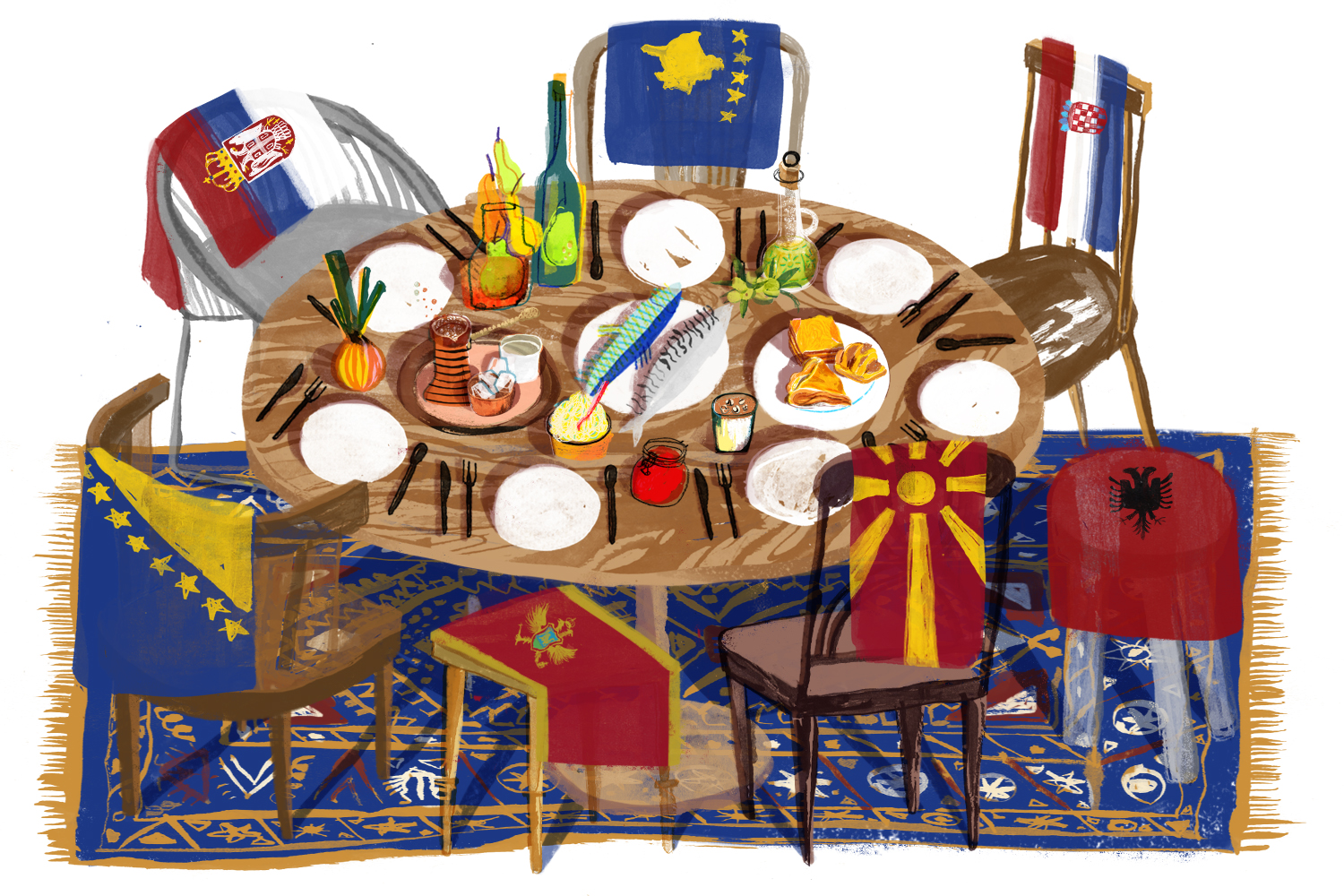 A MISNOMER: WESTERN BALKANS
A MISNOMER: WESTERN BALKANS
Teoman Ertuğrul TULUN 10.07.2017 -
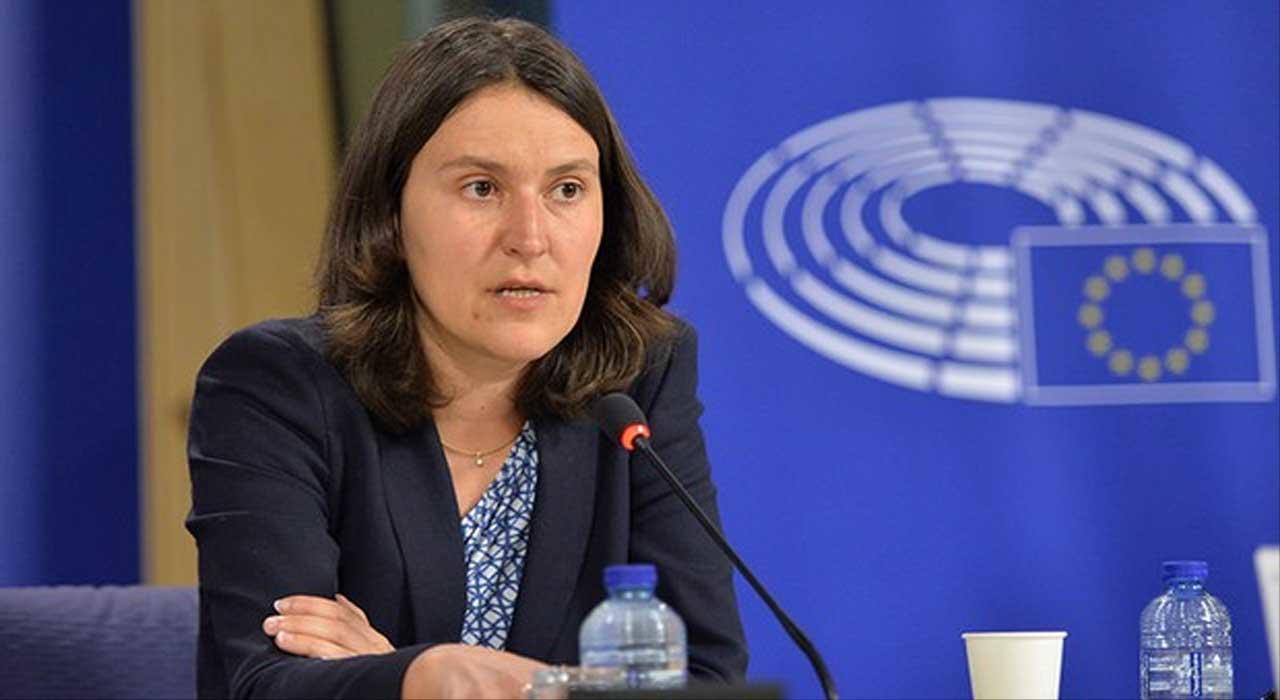 ADMISSION BY KATI PIRI: “ALLOWING CYPRUS IN (EU) WITHOUT A SOLUTION TO CYPRUS PROBLEM… IS A BIG MISTAKE”
ADMISSION BY KATI PIRI: “ALLOWING CYPRUS IN (EU) WITHOUT A SOLUTION TO CYPRUS PROBLEM… IS A BIG MISTAKE”
Teoman Ertuğrul TULUN 01.04.2019 -
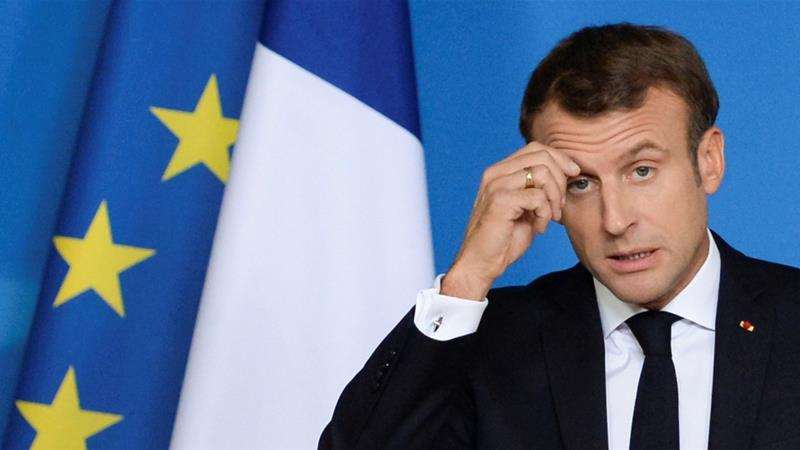 FRANCE WITH MACRON: THE DESTABILIZING FACTOR IN THE BALKANS
FRANCE WITH MACRON: THE DESTABILIZING FACTOR IN THE BALKANS
Teoman Ertuğrul TULUN 01.11.2019 -
 HUNGARY'S PARTICIPATION IN THE COOPERATION COUNCIL OF TURKIC-SPEAKING STATES
HUNGARY'S PARTICIPATION IN THE COOPERATION COUNCIL OF TURKIC-SPEAKING STATES
Teoman Ertuğrul TULUN 12.09.2018
-
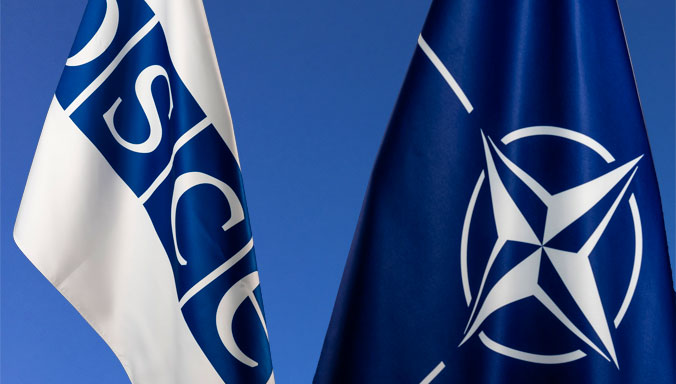 NATO IS NOT BRAIN-DEAD: HOW CAN OSCE AND NATO HELP STOP THE WAR IN UKRAINE?
NATO IS NOT BRAIN-DEAD: HOW CAN OSCE AND NATO HELP STOP THE WAR IN UKRAINE?
Teoman Ertuğrul TULUN 08.03.2022 -
DIASPORA ARMENIANS AND THEIR INITIATIVES FOR COMPENSATION: THE REFLECTIONS OF THE MOVSESIAN CASE
AVİM 12.02.2012 -
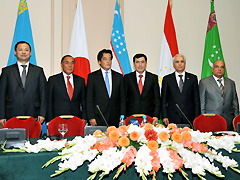 JAPAN’S POLICIES TOWARDS CENTRAL ASIA
JAPAN’S POLICIES TOWARDS CENTRAL ASIA
Özge Nur ÖĞÜTCÜ 31.03.2017 -
 A 26-YEAR-OLD BLEEDING WOUND: THE SREBRENICA GENOCIDE
A 26-YEAR-OLD BLEEDING WOUND: THE SREBRENICA GENOCIDE
Hazel ÇAĞAN ELBİR 27.07.2021 -
 THE 16TH BRICS SUMMIT REGARDING CHINA AND THE GLOBAL SOUTH
THE 16TH BRICS SUMMIT REGARDING CHINA AND THE GLOBAL SOUTH
Seyda Nur OSMANLI 26.12.2024
-
25.01.2016
THE ARMENIAN QUESTION - BASIC KNOWLEDGE AND DOCUMENTATION -
12.06.2024
THE TRUTH WILL OUT -
27.03.2023
RADİKAL ERMENİ UNSURLARCA GERÇEKLEŞTİRİLEN MEZALİMLER VE VANDALİZM -
17.03.2023
PATRIOTISM PERVERTED -
23.02.2023
MEN ARE LIKE THAT -
03.02.2023
BAKÜ-TİFLİS-CEYHAN BORU HATTININ YAŞANAN TARİHİ -
16.12.2022
INTERNATIONAL SCHOLARS ON THE EVENTS OF 1915 -
07.12.2022
FAKE PHOTOS AND THE ARMENIAN PROPAGANDA -
07.12.2022
ERMENİ PROPAGANDASI VE SAHTE RESİMLER -
01.01.2022
A Letter From Japan - Strategically Mum: The Silence of the Armenians -
01.01.2022
Japonya'dan Bir Mektup - Stratejik Suskunluk: Ermenilerin Sessizliği -
03.06.2020
Anastas Mikoyan: Confessions of an Armenian Bolshevik -
08.04.2020
Sovyet Sonrası Ukrayna’da Devlet, Toplum ve Siyaset - Değişen Dinamikler, Dönüşen Kimlikler -
12.06.2018
Ermeni Sorunuyla İlgili İngiliz Belgeleri (1912-1923) - British Documents on Armenian Question (1912-1923) -
02.12.2016
Turkish-Russian Academics: A Historical Study on the Caucasus -
01.07.2016
Gürcistan'daki Müslüman Topluluklar: Azınlık Hakları, Kimlik, Siyaset -
10.03.2016
Armenian Diaspora: Diaspora, State and the Imagination of the Republic of Armenia -
24.01.2016
ERMENİ SORUNU - TEMEL BİLGİ VE BELGELER (2. BASKI)
-
AVİM Conference Hall 24.01.2023
CONFERENCE TITLED “HUNGARY’S PERSPECTIVES ON THE TURKIC WORLD"









